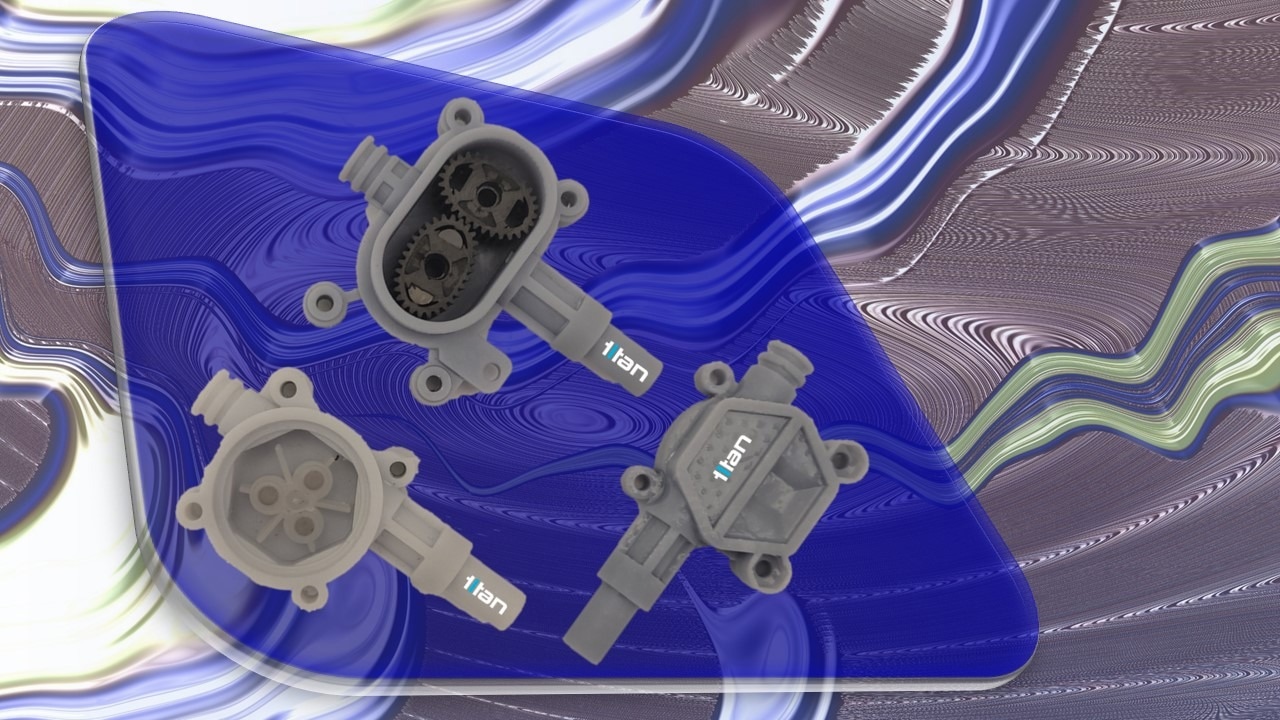“3D printing technology is fundamentally changing the way we design, prototype and test flowmeter devices within our R&D, particularly when developing specialist designs for OEM applications,” says Neil Hannay, Senior R&D Engineer with Titan Enterprises.

Image Credit: Titan Enterprises Ltd.
Titan’s research, development and design advancements are focused around finding innovative solutions for OEM customers, pushing the boundaries of both the physical properties and performance of the products.
Titan started incorporating 3-D printing technology for design over 5 years ago, at the time using a state-of-the-art FDM (Fused Deposition Modeling) printer. New advances in 3D printing have seen this printer become redundant against Titan’s R&D investment in a new printer, purchased at a fraction of the cost yet capable of so much more!
With improved technology and an increased range of engineering materials available, this 3-D printing technique is taking a greater role in Titan’s research and development activities, allowing for quick and cost-effective prototyping.
Although more expensive per cubic volume of model, the precision, detail and durability of Titan’s new UV resin printer allows greater fidelity and facilitates highly iterative design. The other advantage of the resin printer is that it enables printing of replacement parts and own tools to use.
“Being able to make small, precise changes to designs along the development route to test functionality and performance enables us to fast-track through the design process,” states Neil. “This gives our R&D design engineers more freedom to experiment with novel designs at a lower cost, both in time and money, and rapid prototyping. Models and components can be tested, pushing the boundaries of concept design, durability and size in a short amount of time. As such, a tested and performing prototype that we have a good level of confidence in, can then go out to our injection moulding suppliers to produce a customer prototype.”
For example, for a recent OEM turbine development, the 3D printer enabled Titan to size and fit the flowmeter’s externals to the customer’s equipment and run preliminary integrated performance tests. Also, using transparent materials, Titan’s R&D engineers could visually examine the internal manufacture, fit and operation of the flowmeter, all of which sped up the product development dramatically. Historically, early prototypes were produced by CNC, which takes time and is expensive. By having an in-house 3D printer, new versions can be quickly modified, and novel designs tested even the same day as conception.
Titan’s non-metallic flow meters, such as the NSF-Approved 800-series turbine meters and Beverage flowmeters used widely in the medical, food and beverage industries, lend themselves to the 3D printing process for development, progressing and enhancing designs.